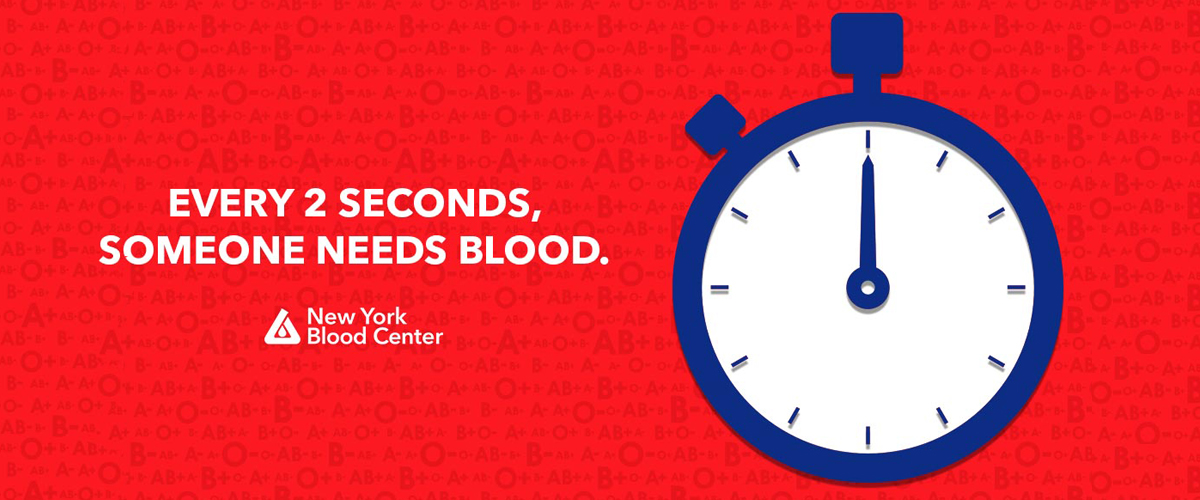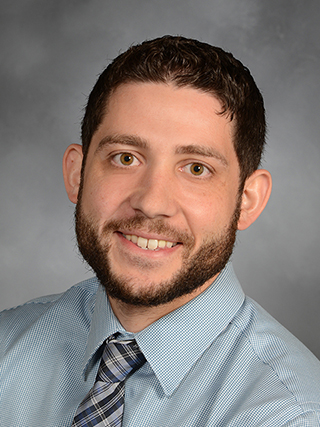The Surprising Benefits of Donating Blood
Amid a worsening blood shortage, NewYork-Presbyterian experts explain how donating blood not only helps someone in need, but also offers health benefits for the donors themselves.

Every two seconds, someone in the U.S. requires a blood transfusion, according to the New York Blood Center. The benefits of donating blood include helping people injured in accidents, undergoing cancer treatment, and battling blood diseases, among other reasons.
Unfortunately, in January 2024, the American Red Cross announced that it was facing an emergency blood shortage as it experiences the lowest number of people giving blood in the last 20 years. The New York Blood Center shared that low donor turnout had led to a 25% drop in donations in recent weeks, creating a critical shortage. With current shortages leading to delays in transfusions, blood donors are needed now more than ever.
“Every time you donate blood, you can save up to three lives,” says Dr. Elizabeth Stone, assistant attending physician in transfusion medicine and cellular therapy at NewYork-Presbyterian/Columbia University Irving Medical Center. “There’s no substitute for blood, and there are a lot of different patient populations who need blood — sometimes emergently. If we don’t have a constant supply from healthy, altruistic donors, unfortunately, our patients may not get the lifesaving blood transfusions that they need.”
For blood donors, rolling up your sleeve comes with some surprising health benefits. Here’s what you get when you give blood:
A Free Health Screening
“By going to donate blood, you are getting a mini-physical,” says Dr. Robert DeSimone, director of transfusion medicine at NewYork-Presbyterian/Weill Cornell Medical Center.
Before you are allowed to donate, your vital signs will be checked to make sure you are fit enough for the procedure. This exam might turn up a condition that needs medical attention, such as high blood pressure or a heart arrhythmia like atrial fibrillation. In addition, you’ll be screened for infectious diseases you may be unaware of. “If we detect an issue with your vital signs or another health issue, we would direct you to go to a physician at that point to be checked,” Dr. DeSimone says.
The health screening will also reveal if you have a rare blood type. This information can be useful if you ever face surgery or another medical situation in which a transfusion may be required. Plus, you’ll have the satisfaction of knowing your donation is particularly needed.

Dr. Robert A. DeSimone
A Healthier Heart and Vascular System
Regular blood donation is linked to lower blood pressure and a lower risk for heart attacks. “It definitely helps to reduce cardiovascular risk factors,” says Dr. DeSimone.
What’s the connection? “If your hemoglobin is too high, blood donation helps to lower the viscosity of the blood, which has been associated with the formation of blood clots, heart attacks, and stroke,” Dr. DeSimone says. “Interestingly, these benefits are more significant in men compared to women. We think maybe it’s because women have menstrual cycles, so they do it naturally without donating blood.”
People with a condition called hereditary hemochromatosis must have blood removed regularly to prevent the buildup of iron. Fortunately, this blood can benefit others.
“People with hereditary hemochromatosis are essentially healthy and are otherwise normal, but they have a gene mutation where they make too much blood,” Dr. Stone says. “So, we can use their healthy blood to help patients who need it.”
The New York Blood Center Hereditary Hemochromatosis Program allows people with hemochromatosis to donate blood rather than have it removed and thrown away. “Instead of having to go to their doctor’s office or a phlebotomy center to remove extra blood, they can go to any local blood drive,” Dr. Stone says.

Dr. Elizabeth Stone
A Happier, Longer Life
People usually donate because it feels good to help others, and altruism and volunteering have been linked to positive health outcomes, including a lower risk for depression and greater longevity.
“Giving blood is a great way to help the most vulnerable people in your community around you,” says Dr. Stone. “People who do altruistic things like donating blood feel closer to their communities, and these positive feelings can lead to better health and longer lives.”
“Creating moments of kindness during a time of need does wonders for your mental health and feeling of well-being,” Dr. DeSimone says.
Added Bonus: A Free Snack
“Every time you donate blood, it’s like burning calories without doing anything, as your body burns 500 calories to replace the blood that was removed,” says Dr. Stone. “And you get to have juice and snacks immediately afterwards, so it’s pretty great.”
Blood Donation Tips
If you plan to give blood, follow these steps:
- Drink plenty of water. Staying hydrated makes it easier to find your veins and helps prevent you from becoming light-headed after donating. Dr. Stone recommends planning a couple of days in advance. “Make sure you’re well hydrated and avoid drinking a lot of alcohol the day or two before donating.”
- Eat well beforehand. Don’t skip breakfast and be sure to eat snacks offered to you after you donate. “Make sure that you eat at least one balanced meal before donating. If you’ve eaten enough and had enough to fluids to drink the day you donate, you’ll be much less likely to have a donor reaction — like feeling dizzy — during or after donation,” Dr. Stone says.
- Exercise before donating blood, not afterward. It’s OK to go to the gym before you donate blood but not so wise afterward. “You might feel tired or dizzy, so take it easy for the rest of the day and minimize physical activity,” says Dr. Stone.
- Take iron tablets. The American Red Cross recommends that individuals who donate blood frequently take an iron supplement or a multivitamin with iron. “More and more, we’re recommending that teenage donors in particular take iron, because it’s been shown that teenage donors may become iron deficient after blood donation,” Dr. DeSimone says.
Click here to find out where you can schedule an appointment or walk in to donate.
Robert A. DeSimone, M.D., is director of transfusion medicine at NewYork-Presbyterian/Weill Cornell Medical Center and an assistant professor of pathology and laboratory medicine at Weill Cornell Medicine. His main role is to oversee the day-to-day operations of the blood bank and to make sure patients receive safe and efficacious blood product transfusions. He is currently investigating the effects of blood donor health behaviors on recipient transfusion outcomes.
Elizabeth F. Stone, M.D., Ph.D. is an assistant attending physician of transfusion medicine and cellular therapy at NewYork-Presbyterian/Columbia University Irving Medical Center, an assistant professor in Pathology and Cell Biology at Columbia University Vagelos College of Physicians and Surgeons, and the medical director of clinical pathology at NewYork-Presbyterian Westchester. In her capacity as attending physician on service, she oversees oversees day-to-day blood bank and clinical apheresis operations. She also oversees the clinical pathology laboratory at NewYork-Presbyterian Westchester and conducts basic and clinical research on platelet transfusion.

